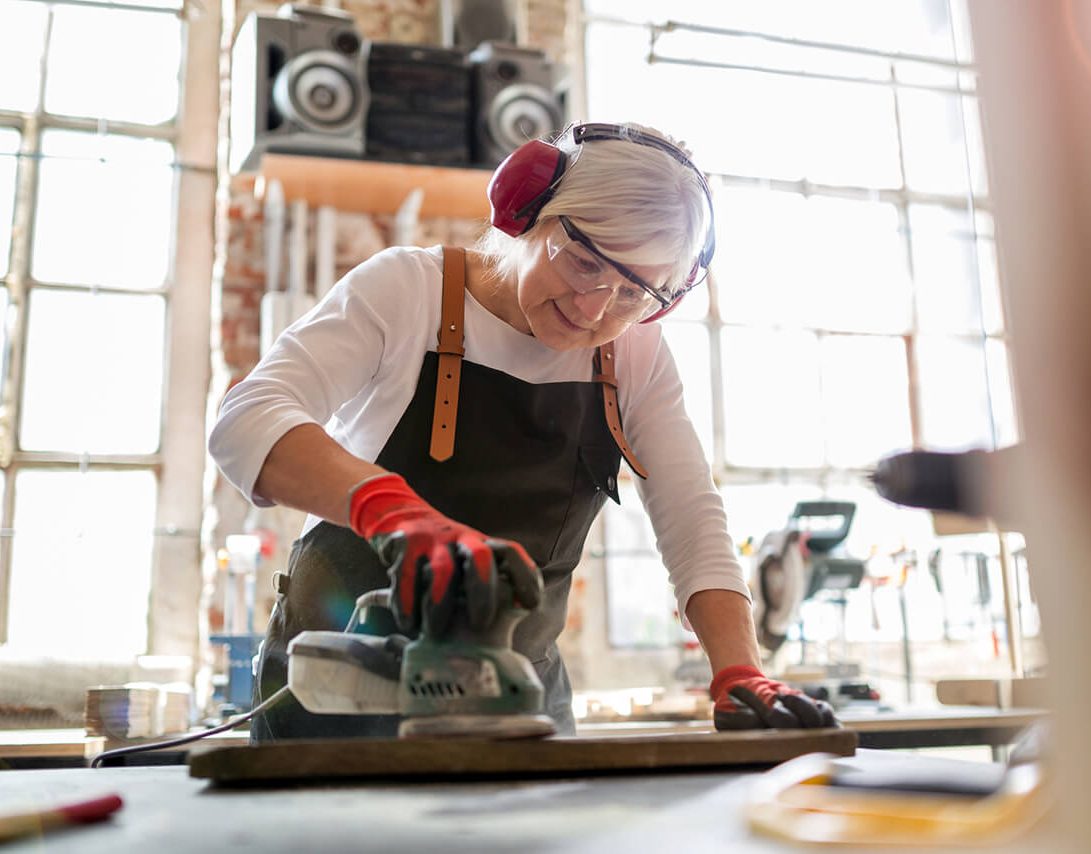If you enjoy making things and improving your home on your own, you are likely familiar with how DIY projects can go wrong. People can suffer serious injuries working with power tools and chemicals. Use these 6 DIY safety precautions to prevent accidents and keep yourself safe.
DIY Safety Precautions with Protective Gear
One of the most important rules to follow when working on DIY projects is to use appropriate protective gear. Power tools can send sparks and debris flying, so wear safety goggles to protect your eyes.
Thick work gloves protect your hands from cuts and your skin from harsh chemicals. Ear protection prevents hearing loss over time from loud noises. Sturdy footwear keeps you from slipping and protects your feet from falling objects. Just like you’ve invested in the tools you need, you should invest in the proper protective gear.
Work While Alert
DIY projects take precision and care. If you aren’t well-rested, your work may be sloppy and you are more likely to have an accident and hurt yourself. Only work on days when you’ve had a good night’s sleep and are alert and awake. If you aren’t feeling your best, put off the project for another time.
DIY Safety Precautions and VOCs
If your DIY project involves painting, choose paints with low or no VOCs. Water-based paints tend to have lower levels of VOCs than oil-based paints. VOCs are unhealthy to breathe and can make you feel lightheaded. Make sure there’s adequate ventilation when painting and open the windows when possible.
Use Table Clamps
If you are cutting pieces of wood, use clamps to secure the wood to the table. Stabilizing the wood with a clamp instead of your hand is much safer and reduces the risk of injury.
Clear the Area
When using power tools, there are often extension cords laying across the floor. For a safe work environment, clear cords out of the center of the area and away from pathways to prevent someone from tripping over them and falling.
Work in a Well-Lit Space
Turn on all the lights in the space where you are working and bring in additional lights if the existing ones aren’t bright enough. Rent or buy a bright work light from a hardware store if necessary. Sufficient lighting is important for completing DIY projects safely.
Spot On Inspection offers home inspections to Houston and the surrounding areas. Contact us to book our services.

